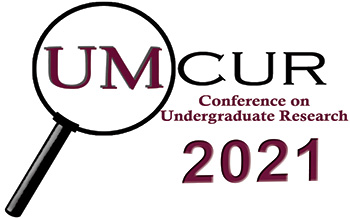Taxation Without Representation: A Lack of Social Benefits Perpetuates Injustice for DACA Recipients
Project Type
Presentation
Faculty Mentor’s Full Name
Kathy Kuipers
Faculty Mentor’s Department
Sociology
Abstract / Artist's Statement
For this research, the main theme will revolve around inequalities for those who are under DACA in the United States. Specifically, it will focus on how this community pays taxes on income, yet are denied social benefits from programs that are tax-funded. This research will be comprised of primary data collection, as well as an analysis of existing literature regarding the issue.
The working thesis statement for this research is as follows. The lack of benefits given to DACA recipients, given average employment, wages, and taxes paid, perpetuates a cycle of inequality. Data about income and tax information, as well as the history of receipt of any type of public benefit will be collected via a survey of DACA recipients across the nation. The respondents will be found through recruitment from various online support forums and social media groups. Questions will largely be closed-ended, and participants will be able to select their responses from a set of provided options, in order to more easily quantify results.
The data from the survey responses will be analyzed in comparison with existing information regarding income, tax information, and benefit eligibility for DACA recipients. Finally, an analysis of all available information will be conducted to determine whether DACA recipients pay into tax revenue in a proportionate amount with how much US citizens contribute, but are denied a majority of the public benefits that are funded through taxes. I expect to find that they are largely impacted by this inequity.
This topic is important for the general public to care about, as it is a question of fairness and addresses a large problem of inequality in our society. There are a large number of people being disadvantaged by the laws and policies that regulate the DACA program and limit opportunities for the recipients. In order to promote social justice and establish a truly equal and just nation, more social awareness must be raised regarding these issues, and steps must be taken to ensure the rectification of the unequal treatment of DACA recipients.
Category
Social Sciences
Taxation Without Representation: A Lack of Social Benefits Perpetuates Injustice for DACA Recipients
For this research, the main theme will revolve around inequalities for those who are under DACA in the United States. Specifically, it will focus on how this community pays taxes on income, yet are denied social benefits from programs that are tax-funded. This research will be comprised of primary data collection, as well as an analysis of existing literature regarding the issue.
The working thesis statement for this research is as follows. The lack of benefits given to DACA recipients, given average employment, wages, and taxes paid, perpetuates a cycle of inequality. Data about income and tax information, as well as the history of receipt of any type of public benefit will be collected via a survey of DACA recipients across the nation. The respondents will be found through recruitment from various online support forums and social media groups. Questions will largely be closed-ended, and participants will be able to select their responses from a set of provided options, in order to more easily quantify results.
The data from the survey responses will be analyzed in comparison with existing information regarding income, tax information, and benefit eligibility for DACA recipients. Finally, an analysis of all available information will be conducted to determine whether DACA recipients pay into tax revenue in a proportionate amount with how much US citizens contribute, but are denied a majority of the public benefits that are funded through taxes. I expect to find that they are largely impacted by this inequity.
This topic is important for the general public to care about, as it is a question of fairness and addresses a large problem of inequality in our society. There are a large number of people being disadvantaged by the laws and policies that regulate the DACA program and limit opportunities for the recipients. In order to promote social justice and establish a truly equal and just nation, more social awareness must be raised regarding these issues, and steps must be taken to ensure the rectification of the unequal treatment of DACA recipients.
